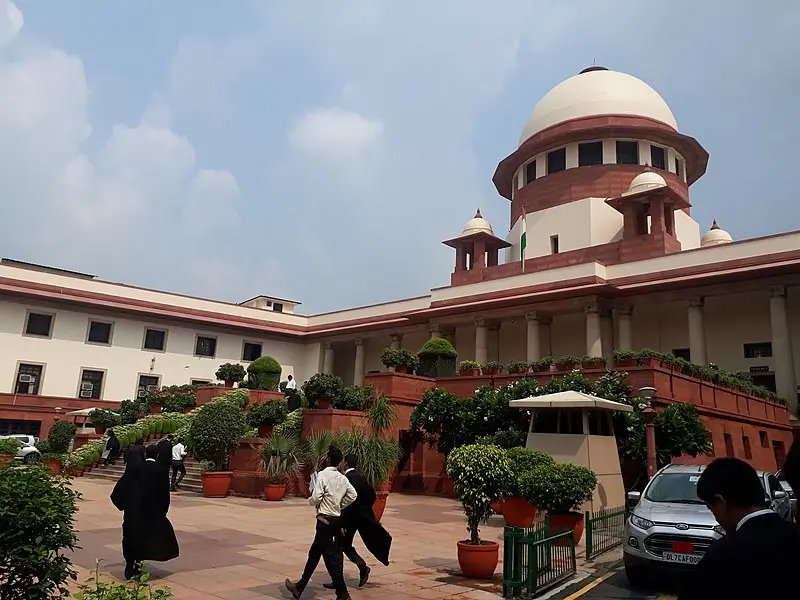SC sets aside Tamil Nadu Governor’s move of withholding assent to Bills: The ruling, impact

Supreme Court Strikes Down Governor’s Assent Withholding
In a landmark decision that may redefine the contours of federal power in India, the Supreme Court on April 8, 2025, struck down Tamil Nadu Governor R.N. Ravi’s controversial move to withhold assent to several state bills. The apex court called the Governor’s action “unconstitutional” and emphasized that state governors cannot override the democratic will of elected legislatures by sitting indefinitely on legislation.
This verdict not only rebukes the Governor’s action but also marks a political moment of reckoning. It highlights the relationship between elected governments and the constitutional head of states, especially in politically polarized environments.
What Led to the Supreme Court’s Intervention?
For months, tensions escalated between the Tamil Nadu government and Governor R.N. Ravi. The DMK-led Tamil Nadu Legislative Assembly passed several key bills to reshape the administrative structure of state-run institutions, including changes to how university Vice-Chancellors and other officials are appointed.
The Governor returned many of these bills, and the Assembly re-passed them. Despite this, the Governor delayed or denied assent, prompting a constitutional crisis. The state government then approached the Supreme Court to seek clarity on the Governor’s constitutional obligations.
The Supreme Court’s Verdict: Key Takeaways
Governor Must Act Within Constitutional Limits
The court clarified that a governor lacks discretionary powers to indefinitely delay or withhold assent to bills passed by an elected legislature, especially when the Assembly re-passes them.
Democratic Mandate Must Prevail
The judgment stressed that the will of an elected legislature must take precedence over a Governor’s personal or political views. The Governor serves as a constitutional figurehead, not a policy-making executive.
Delays Subvert Democracy
The bench stated that refusing or delaying assent to legislation subverts the democratic process. Such actions violate the law and hinder governance.
Political Significance Beyond Tamil Nadu
Although the verdict immediately affects Tamil Nadu, its impact extends nationwide. States like Kerala, Punjab, West Bengal, and Telangana have faced similar challenges with their governors, including bill approval delays and restricted file movements.
This ruling sends a powerful message to all Indian governors: the Constitution takes precedence, and no official can place political agendas above constitutional duty.
Strengthening Federalism
The Supreme Court’s decision bolsters India’s federal structure. It affirms that governors must facilitate governance rather than obstruct it. In India’s diverse democracy, Centre-State relations should rest on mutual respect and democratic commitment.
The ruling also revives debate on the governor appointment process. Since the central government appoints governors, many critics advocate for a more consultative, bipartisan approach—particularly in opposition-ruled states—to ensure neutrality.
Legal and Academic Reactions
Constitutional experts praised the verdict for clarifying Article 200 of the Indian Constitution, which outlines a Governor’s legislative powers. Legal scholars believe the judgment sets a precedent to limit gubernatorial overreach.
Retired judges and senior advocates added that the ruling could lead to closer judicial scrutiny in future cases involving politically driven gubernatorial actions.
What Happens Next?
The Supreme Court directed the Tamil Nadu Governor to grant assent to the pending bills. For the Tamil Nadu government, the decision validates its legislative authority and affirms its right to govern without undue interference.
Nationwide, this ruling could trigger new debates in Parliament and civil society on the evolving role of governors in modern Indian democracy. It may also encourage opposition-led states to assert their rights and oppose perceived overreach by centrally appointed officials.
Conclusion
The Supreme Court’s ruling against the Tamil Nadu Governor’s refusal to grant assent is a bold and necessary move to protect India’s constitutional framework. Amid rising federal tensions, the verdict underscores that democratic processes must prevail and that constitutional roles should never be misused for political gain.
This judgment transcends individual bills or state boundaries—it defends the integrity of India’s democracy and the constitutional order that sustains it.






